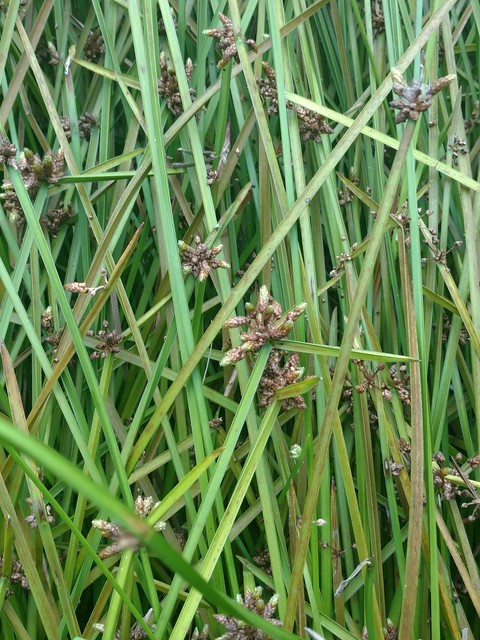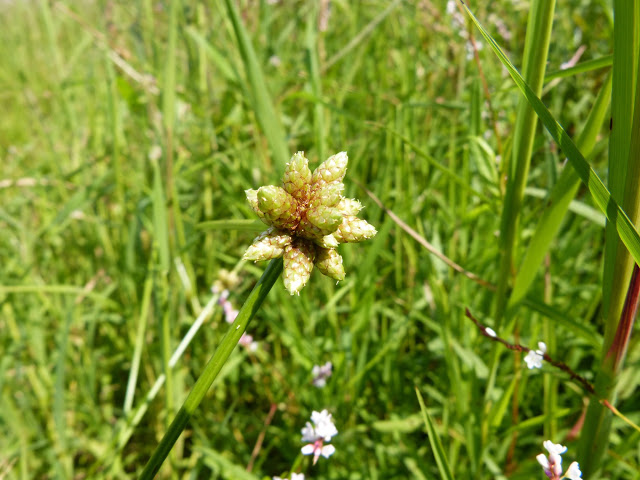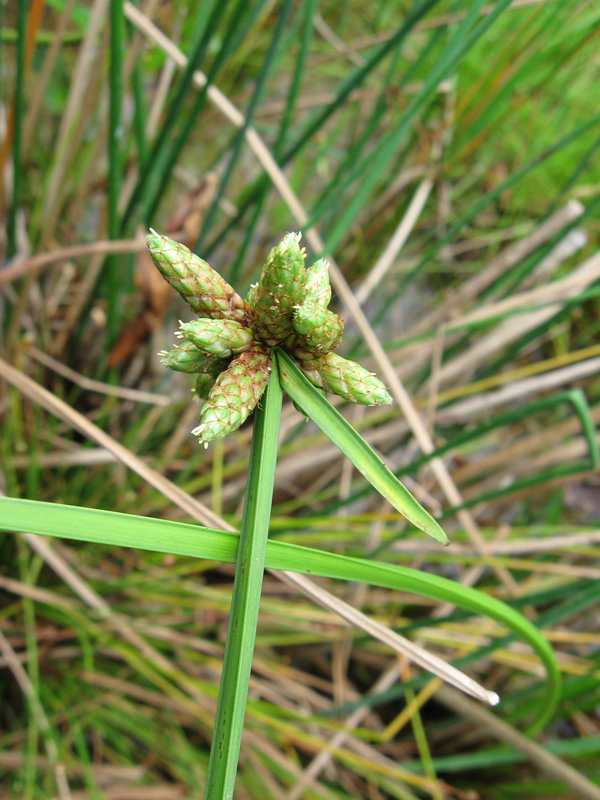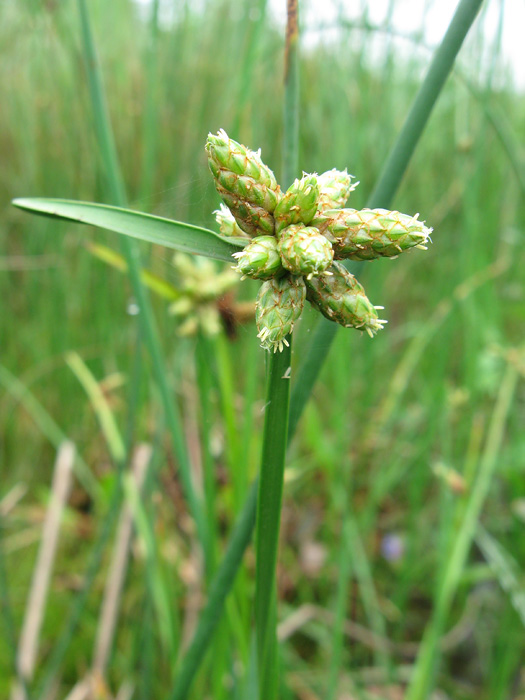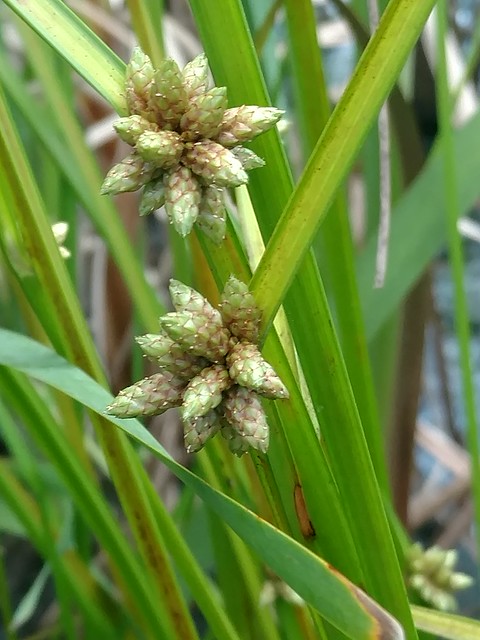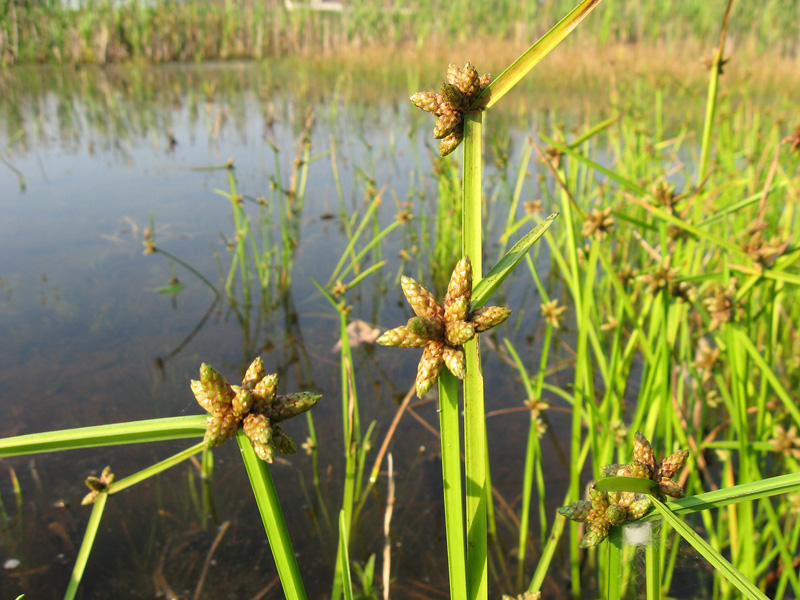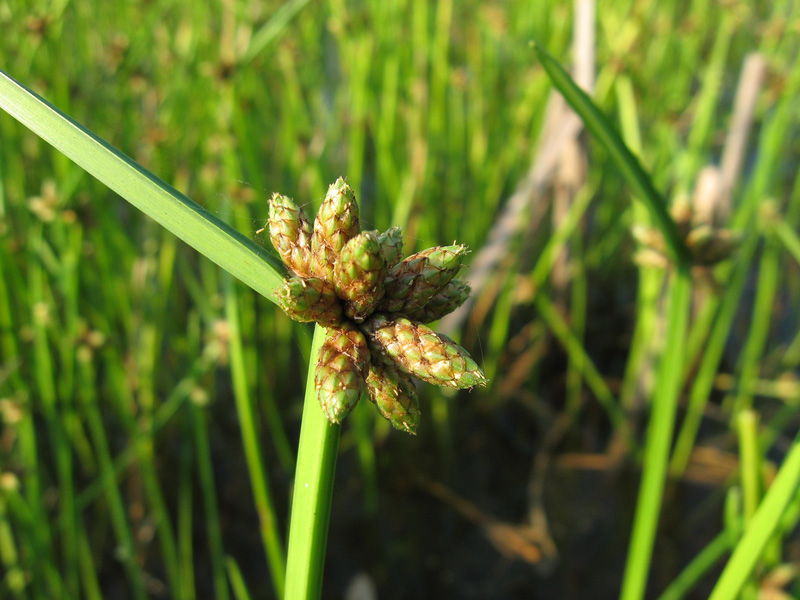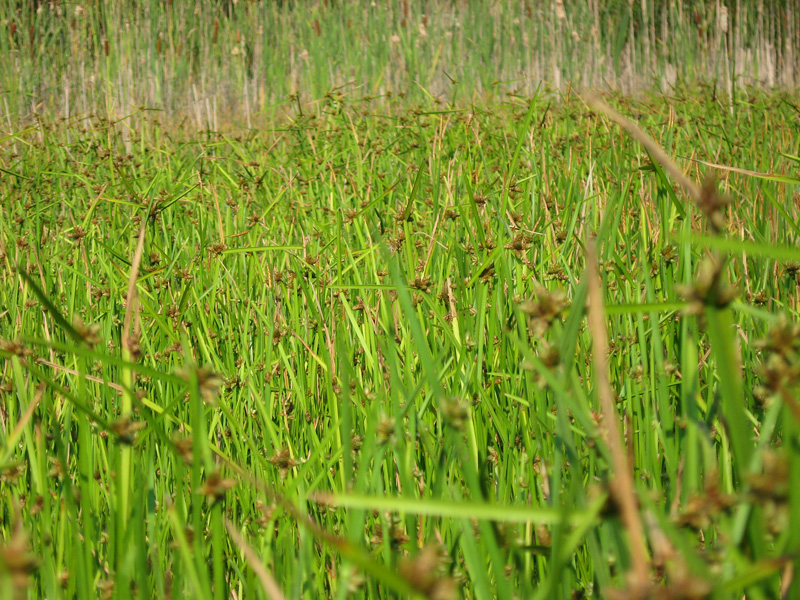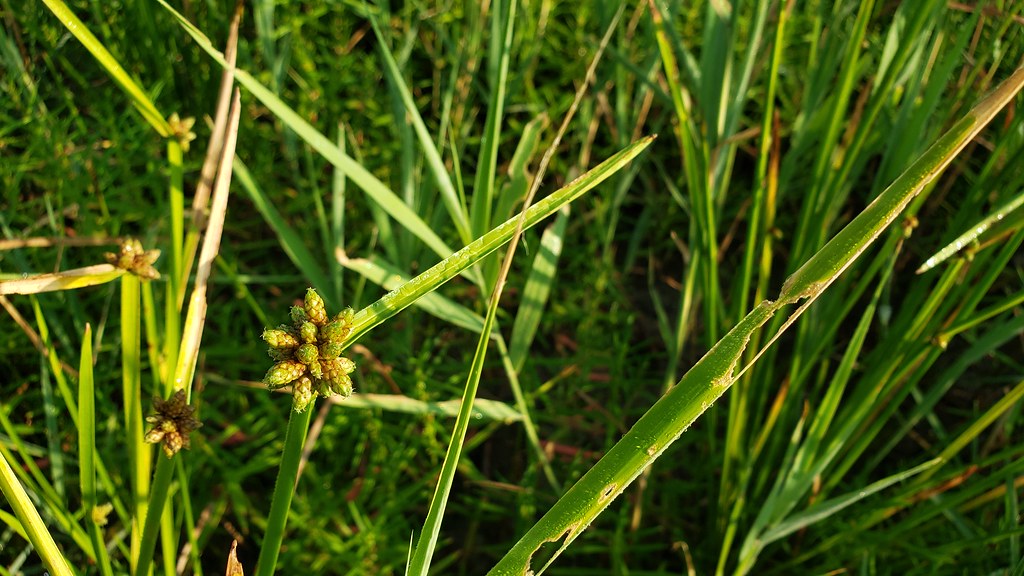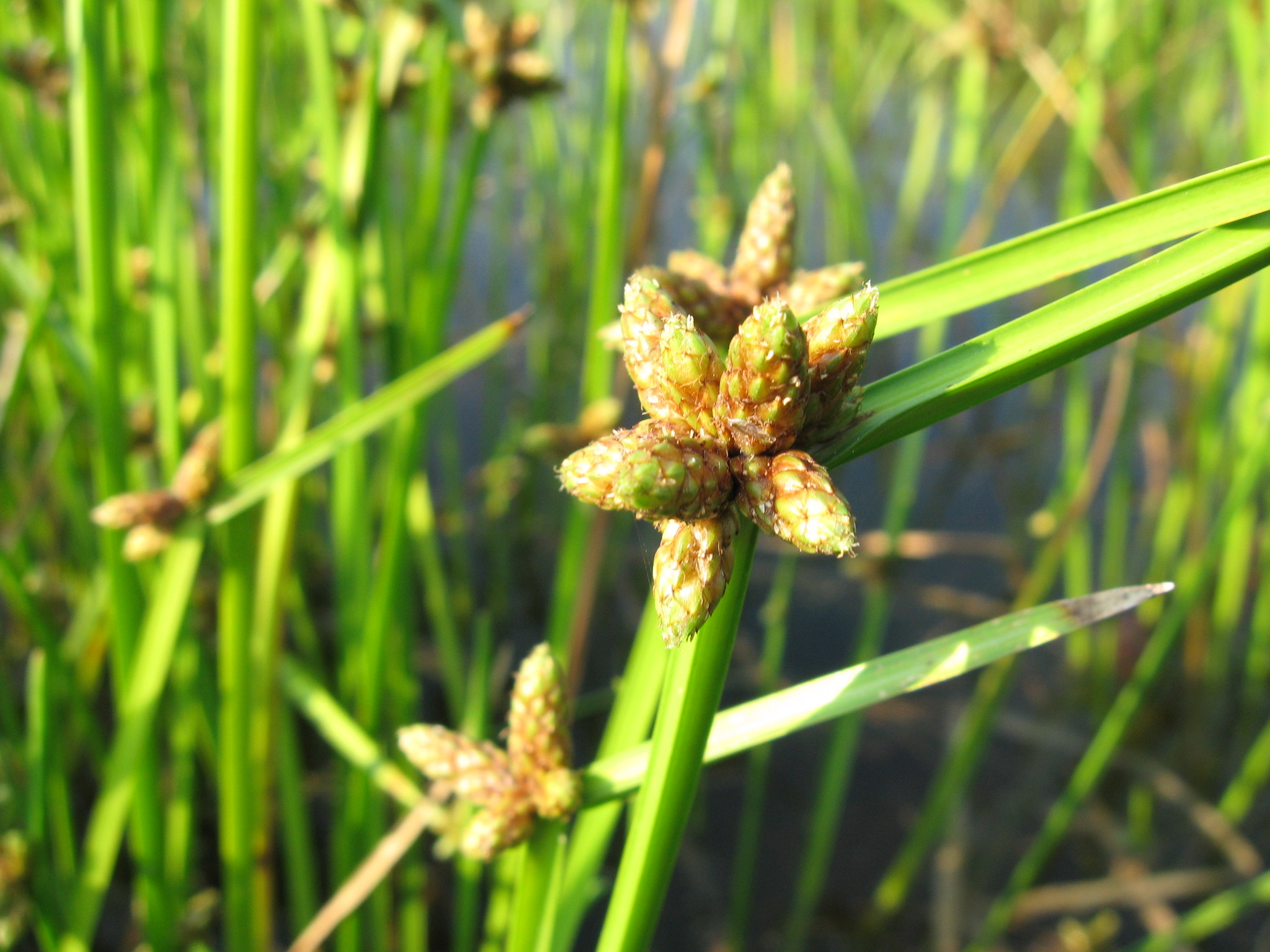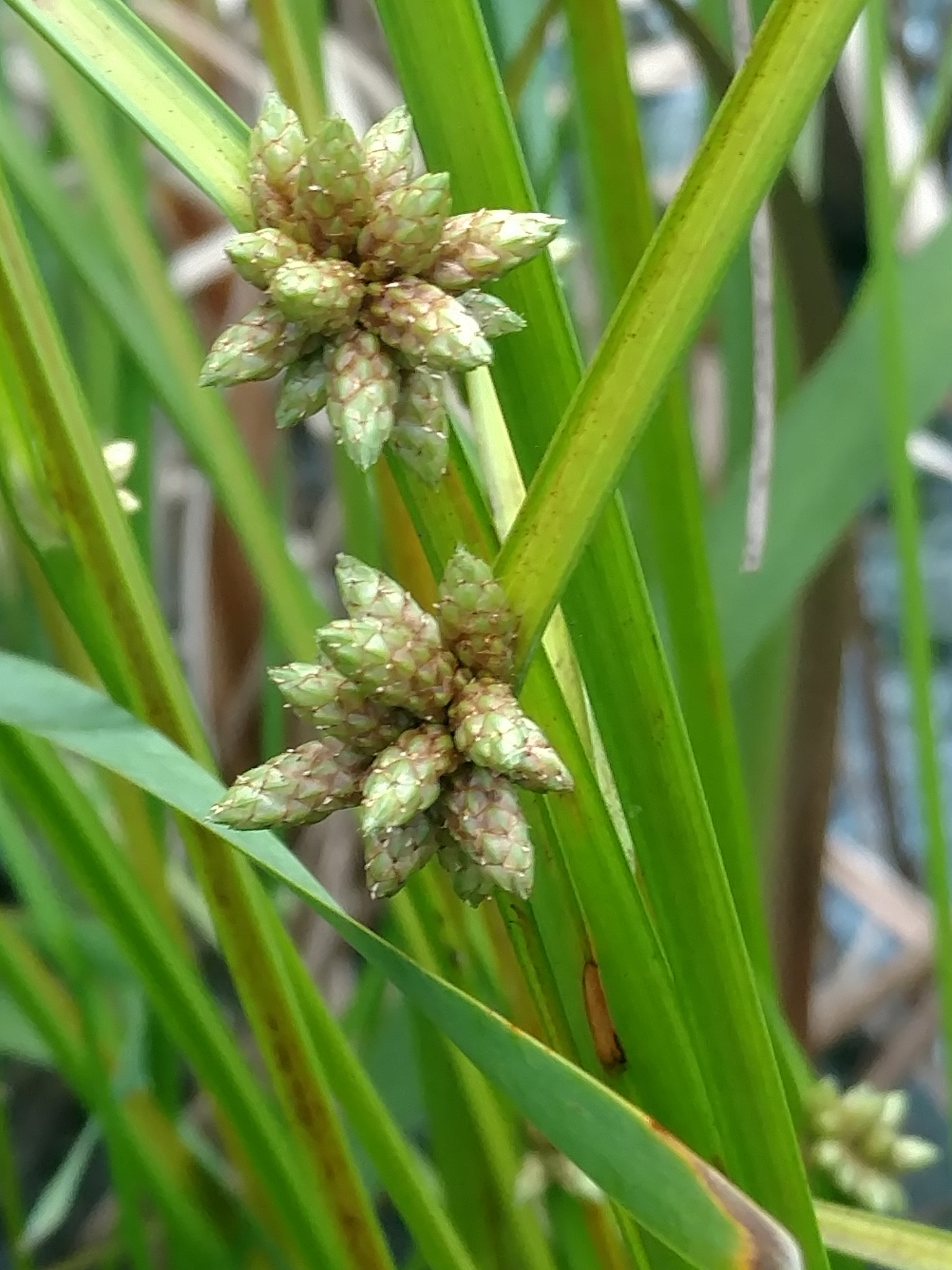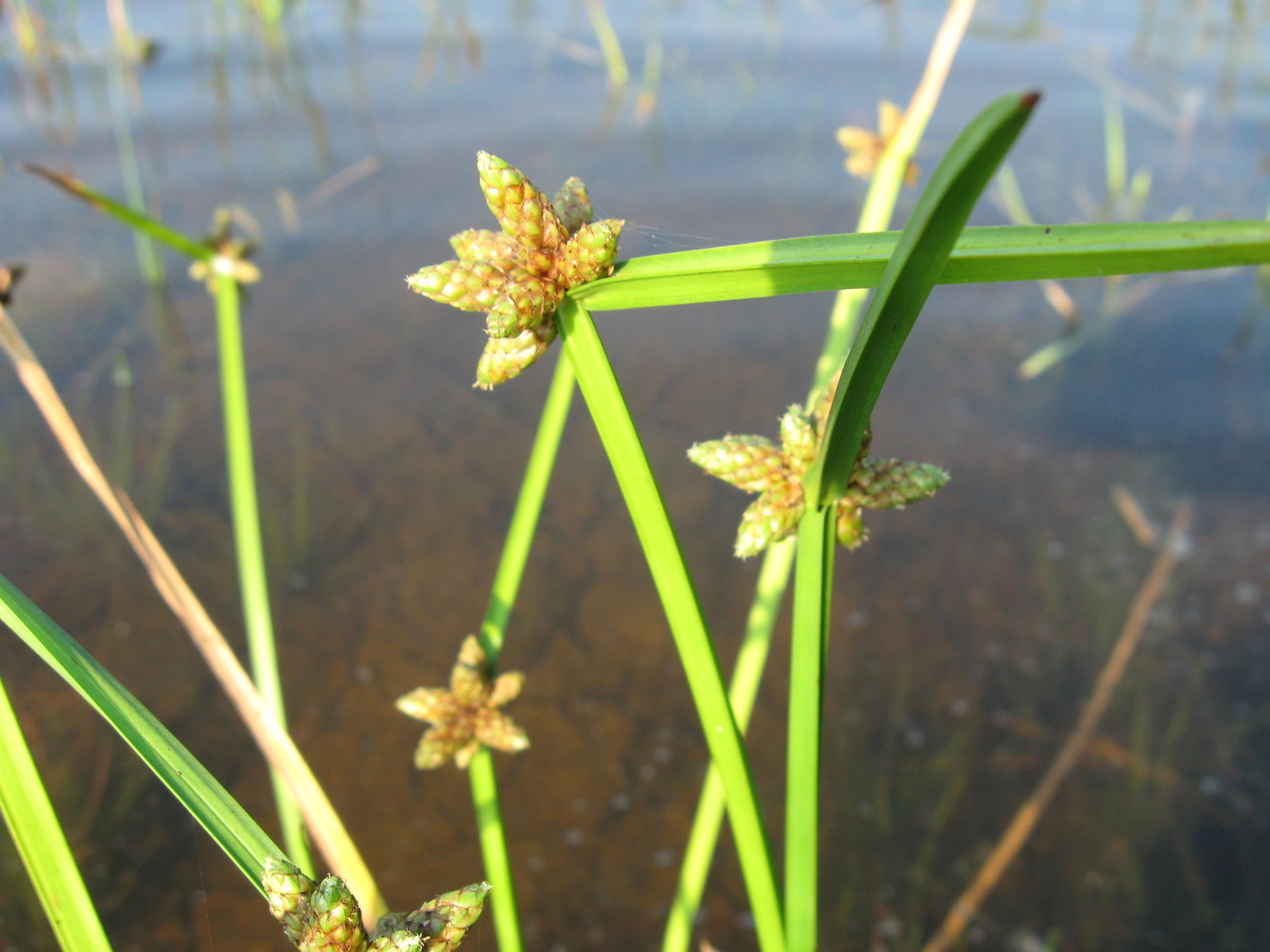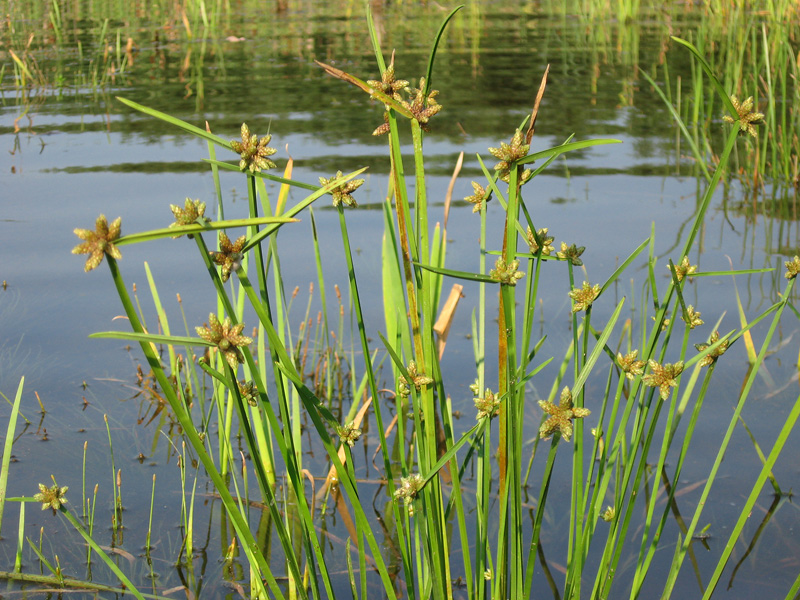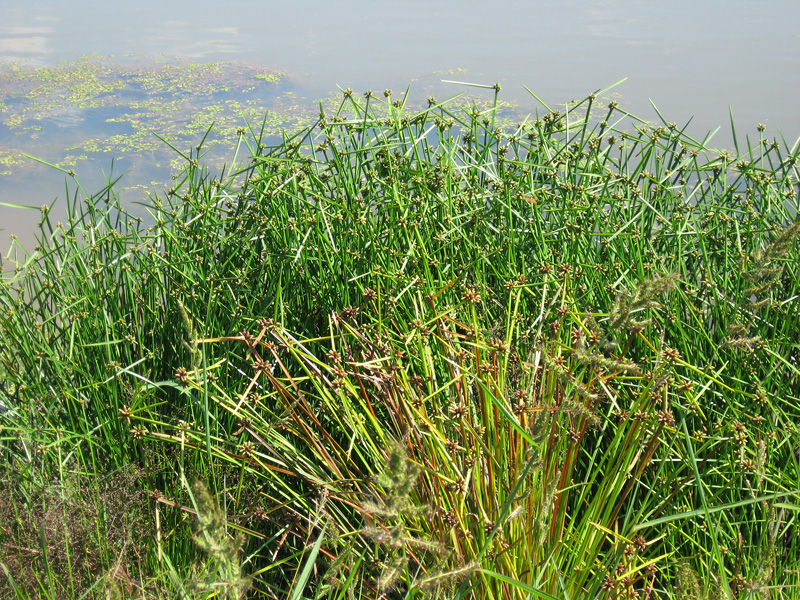Map Snapshot








41 Records
Status
Bog Bulrush is an invasive species in Maryland (MISC 2022).
Seasonality Snapshot
Source: Wikipedia
| Schoenoplectiella mucronata | |
|---|---|

| |

| |
| Walini, Schoenoplectiella mucronata from Puncak, Bogor Regency, West Java | |
| Scientific classification | |
| Kingdom: | Plantae |
| Clade: | Tracheophytes |
| Clade: | Angiosperms |
| Clade: | Monocots |
| Clade: | Commelinids |
| Order: | Poales |
| Family: | Cyperaceae |
| Genus: | Schoenoplectiella |
| Species: | S. mucronata
|
| Binomial name | |
| Schoenoplectiella mucronata (L.) J.Jung & H.K.Choi
| |
| Synonyms[1] | |
| |
Schoenoplectiella mucronata is a species of flowering plant in the sedge family[1] known by the common names bog bulrush,[2] rough-seed bulrush,[3] and ricefield bulrush.[4] It is native to Eurasia, Africa and Australia.[5] It grows in moist and wet terrestrial habitat, and in shallow water. It is a perennial herb growing from a short, hard rhizome. The erect, three-angled stems grow in dense clumps and can reach a metre tall. The leaves take the form of sheaths wrapped around the base of stem, but they generally do not have blades. The inflorescence is a headlike cluster of cone-shaped spikelets accompanied by an angled, stiff bract which may look like a continuation of the stem.[6]: 228–30
It is a weed of rice fields in California.[4][7]
Taxonomy
[edit]
As of July 2020[update], Plants of the World Online lists 35 taxonomic synonyms of Schoenoplectiella mucronata,[5], and the Council of Heads of Australasian Herbaria lists two.[1] It was first described as Scirpus mucronatus in 1753 by Carl Linnaeus.[1][8] In 1889 Eduard Palla transferred it to the genus, Schoenoplectus,[9] and Schoenoplectus mucronatus was the accepted name until 2010 when it was transferred to the genus, Schoenoplectiella by Jongduk Jung and Hong-Kuen Choi.[1][6]
References
[edit]- ^ a b c d e "Schoenoplectiella mucronata". Australian Plant Name Index, IBIS database. Centre for Plant Biodiversity Research, Australian Government.
- ^ USDA, NRCS (n.d.). "Schoenoplectiella mucronata". The PLANTS Database (plants.usda.gov). Greensboro, North Carolina: National Plant Data Team. Retrieved 5 July 2020.
- ^ "ROUGH SEED / BOG BULRUSH (Schoenoplectus mucronatus) Seeds 'Bush Tucker Plant'". Edible Oz. Retrieved 5 July 2020.
- ^ a b UC Davis IPM
- ^ a b "Schoenoplectiella mucronata (L.) J.Jung & H.K.Choi". Plants of the World Online. Royal Botanic Gardens, Kew. Retrieved 5 July 2020.
- ^ a b Jung, Jongduk; Choi, Hong-Keun (2010). "Systematic Rearrangement of Korean Scirpus L. s.l. (Cyperaceae) as Inferred from Nuclear ITS and Chloroplast rbcL Sequences" (PDF). Journal of Plant Biology. 53 (3): 230. doi:10.1007/s12374-010-9109-8. ISSN 1226-9239. S2CID 37342932. Archived from the original (PDF) on 5 July 2020.
- ^ Flora of North America
- ^ Linnaeus, C. (1753). "Scirpus". Species Plantarum. 1: 50.
- ^ Kerner, A. (1889). "Schedae ad Floram Exsiccatam Austro-Hungaricam". 5: 91.
{{cite journal}}: Cite journal requires|journal=(help)
External links
[edit]
